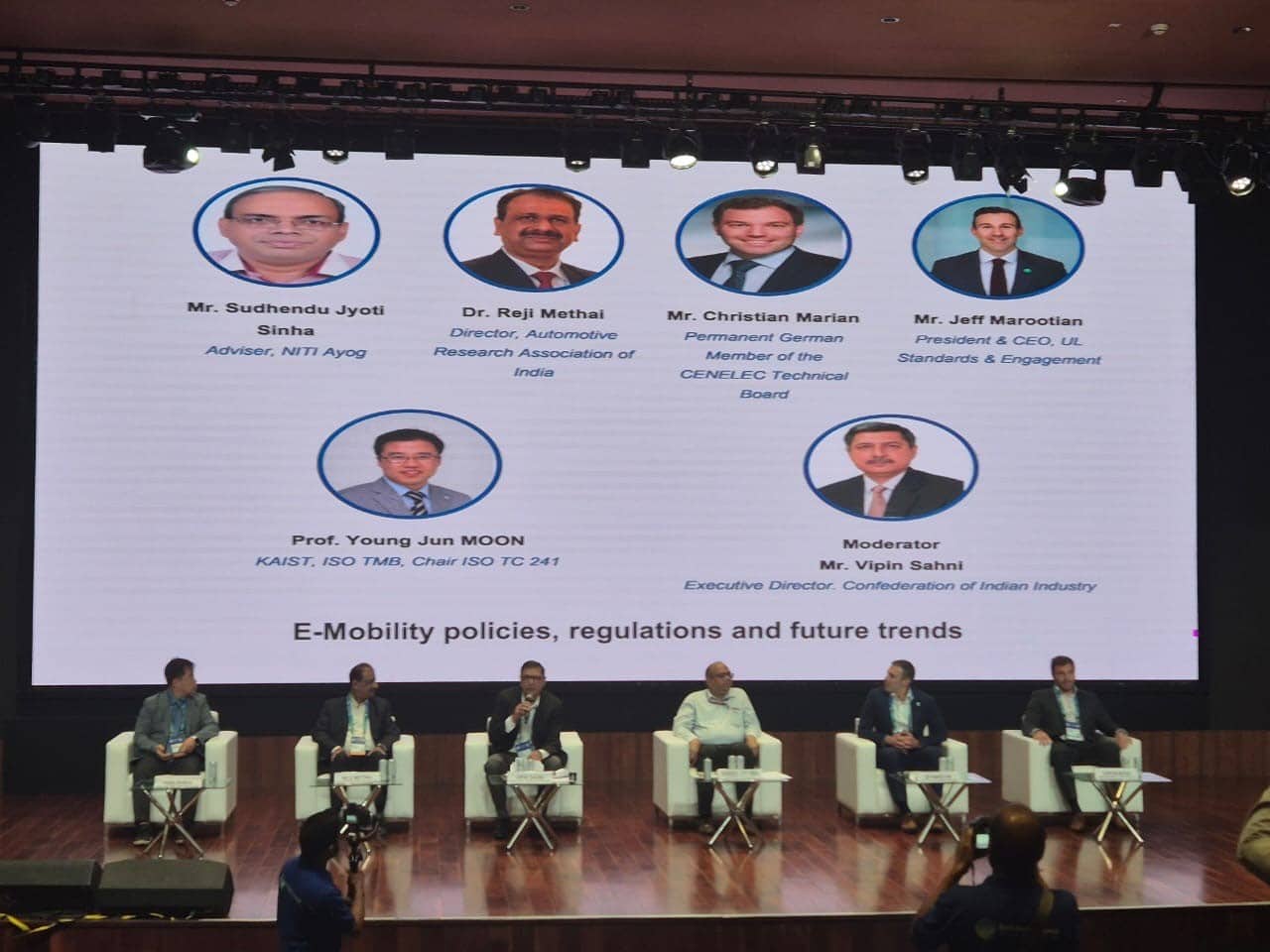In this article we discuss two Indico Global projects in Africa, – we will invite you to webinars after summer – and focus on a concept of Imagined Communities by Benedict Arnold that can function as the social praxis that is the counterpart of the standardization process.
The easiest way to think about the profound impact of a standard is to look at the shipping container. We all know that and we cannot conceive how things were shipped in other times. Every single item had to be handled, stocked and stored.
This went on for centuries until in 1956 Malcolm Maclean patented the first container structure. Interestingly Maclean was not from the shipping industry but owned a trucking company. Every day he witnessed first hand what a waste of time, space and manpower these procedures were. Yet of course this practice also reflected centuries of specific forms of work that created its own professional groups of workers, those who handled the barrels, those who handled delicate goods to the extent that they were called by specific names. A standard is always a trade-off as there is always a prior practice to it. No doubt that practice was there for a specific reason, but as times changed these practices changed with it. Maclean was able to see the need for change not because he was on the boat loading off cargo, but precisely because he was on the receiving end, the truck. Nowadays over 90% of cargo is shipped in containers.
Standards are mutual forms of understanding and collaboration in a (im)material form. They always required intricate forms of negotiation and long term views. They also require innovative ways of thinking and creativity. Yet standards work behind the scenes, in the background and what they standardize is elements and building blocks that may not necessarily point directly to the practice that it is made to sustain.
The building blocks that are part of standardization processes must be timely to be supported by a society that is ready for it. And while it may be a pressing matter to the experts, it may be not that relevant yet to citizens.
In the case of the GDPR it was not clear to many citizens that with the digital layer on top of the everyday world a different ontological situation had appeared. Ontological in this respect means that what was generally felt to be normal has become less normal or strange because the situation changed drastically.
Imagined Communities
An imagined community is a concept developed by Benedict Anderson in his 1983 book Imagined Communities to analyze nationalism. Anderson depicts a nation as a socially-constructed community, imagined by the people who perceive themselves as part of a group.
“Anderson focuses on the way media creates imagined communities, especially the power of print media in shaping an individual’s social psyche. Anderson analyzes the written word, a tool used by churches, authors, and media companies (notably books, newspapers, and magazines), as well as governmental tools such as the map, the census, and the museum. These tools were all built to target and define a mass audience in the public sphere through dominant images, ideologies, and language..”
A similar concept – hegemony – was used by Antonio Gramsci to explain how cultural power always preceded political power. Both concepts reflect the fact socio-cultural and technical innovation precedes societal impact and change.
For citizens growing up in an analogue world privacy was a matter of being seen or not seen. The digital layer that grew over the world in the past thirty years resulted in a hybrid space in which individuals leave and create traces that are fully invisible..
The first region to grasp the serious repercussions was Europe. The key realization was that contrary to the world before computers, internet and social media, people were seen as distinct from each other and recognizable as the mother of Tom, the son of the baker and Elsa from next door, only existing in regulated bureaucracy as particular sets of data. With the new commercial digital space individuals are sliced up in bits of data and they thus become a set of characteristics that may not resemble the person at all.
This understanding of the priority of data over individuals is at the heart of GDPR. And those who understand this, they form part of an Imagined Community, a community that does not resemble the nation nor the neighborhood, family nor friends but a community that transcends these boundaries to become an Imagined Community of the praxis of privacy.
In the IndiCo Global project the notion of data protection is a thread in projects in programs.
In this article we focus on two of our projects in Africa; accessibility standards and digital identity wallets.
1. Accessibility Standards/EAA in Africa
Klaus Höckner is CEO of the Hilfsgemeinschaft, the leading privately funded organisation helping visually impaired persons in Austria. He is a member of the Austrian Disability Forum board, in IAAP’s Global Leadership Council and on diverse conference boards. He works together with Access Israel and is a Zero Project Ambassador. Klaus has over 15 years’ experience in ICT and standardisation at a European and inter/national level. Since 2018 he is on the European Commission’s High Level Expert Group on AI.
https://zeroproject.org/view/contact/b4e65662-9f04-eb11-a813-000d3ab9b226
In today’s digital world, accessibility is a crucial aspect of ensuring that everyone, including people with disabilities, can use technology and digital services without barriers. Our project, Accessibility Standards/EAA in Africa, aims to bring the European Accessibility Act (EAA) and its standards, such as EN 301 549, to African countries. By doing this, we help ensure that digital platforms, mobile apps, public services, and other ICT tools are designed to be accessible to all individuals, including those with visual, auditory, and mobility impairments.
We will work with governments, NGOs, and technology experts in Africa to adopt and adapt these accessibility standards. Through workshops, training sessions, and policy discussions, we aim to create a more inclusive digital environment where people with disabilities can participate fully in society. This project supports equal opportunities and digital inclusion for all.
The Accessibility Standards/EAA in Africa project is designed to facilitate the adoption and implementation of European ICT accessibility standards (EN 301 549, EN 17210, and others under M 587) across African countries. The project leverages the European Accessibility Act as a foundational framework while localizing its principles to fit regional legislative and technological contexts. It focuses on knowledge transfer, stakeholder engagement, and policy advocacy to integrate these standards into national regulatory frameworks and ICT procurement policies.
Our approach includes targeted collaboration with African standardization bodies, disability organizations, and government agencies. We will organize multi-stakeholder workshops, conduct needs assessments, and provide technical guidance on standard transposition. The expected impact includes stronger policy alignment with global accessibility frameworks, increased compliance with digital accessibility best practices, and a significant boost in the inclusivity of ICT products and services in Africa.
Data Privacy and Security Regulations in Austria & Europe (GDPR Context) and Relevance to the Project
- The General Data Protection Regulation (GDPR) is the primary framework governing data privacy in Austria and the European Union. It enforces strict data protection measures, ensuring individuals have control over their personal data.
- Key Aspects of GDPR:
- Companies must obtain explicit consent to process personal data.
- Individuals have the right to access, correct, and delete their data.
- Organizations must implement robust security measures to protect data from breaches.
- Non-compliance can result in significant fines (up to 4% of global revenue).
GDPR Praxis in Austria
- Austria actively enforces GDPR through its Data Protection Authority (DSB), ensuring businesses comply with data privacy laws.
- Recent enforcement actions have targeted companies failing to provide adequate data security and transparent data collection practices.
- Austrian companies, particularly in the ICT sector, must align with ENISA (European Union Agency for Cybersecurity) guidelines to safeguard digital accessibility solutions.
Relevance to the Project
- Since the project involves digital accessibility and ICT solutions, adherence to GDPR principles will be crucial, especially in handling personal data of people with disabilities.
- Best practices will be incorporated to ensure data protection compliance when collaborating with African organizations.
- Stakeholders will be trained on GDPR’s influence on inclusive digital policies, ensuring ethical data use while promoting accessibility.
- Developing Guidelines on Common Denominators for Security Levels of Digital Identity Wallets between Europe and Africa
Debora Comparin is Standardization Expert at Thales Digital Identity & Security, founder and chair of the OSIA Initiative, co-founder of SIDI Hub and Advisory Board member of the Linux Foundation Europe and the Open Identity Exchange (OIX).
https://www.kuppingercole.com/speakers/3655
See also:
INSTAR workshop slides – The EU’s Impact on International Cybersecurity & eID Standardisation efforts
https://zenodo.org/records/15084881
Imagine a world where your identity documents—such as your passport, identity card, and driver’s license—are securely stored on your phone, just as easy to use and reliable as their physical counterparts. Your phone then becomes a digital identity wallet, allowing you to access essential services like online banking, healthcare, and government applications seamlessly. This project aims to turn that vision into reality by ensuring that digital identity wallets are safe and trustworthy across different countries.
As digital identities inevitably extend beyond European borders, securing digital wallets becomes a global challenge. A security breach in one region can have ripple effects worldwide, impacting individuals, governments, and service providers. This project is about finding common ground on digital wallet security between the European and African approaches—starting with what already exists. We’re looking at the ‘delta’—the gap—between the European regulation for wallets (eIDAS) and Africa’s emerging trust frameworks, particularly when it comes to security. The final outcome will be a publicly available guideline—defining what secure digital identity wallet deployment could look like in Africa, based on both European models and local realities.
Under the eIDAS regulation, the European Union mandates that each Member State provide a digital identity wallet (EUDI Wallet) to its citizens, ensuring its acceptance across both the public and private sectors. Recognizing the critical importance of security, the eIDAS regulation requires that the EUDI Wallet be certified to a high level of assurance, meaning it must be resistant to attackers with high attack potential.
This project aims to analyze and compare EU and African security standards while considering regional deployment strategies for digital identity wallets. The final outcome will be a publicly available guideline on common security denominators for wallets across both regions.
Ultimately, this initiative will strengthen international cooperation, build trust in digital identity systems, and contribute significantly to global cybersecurity efforts.
“Africa is experiencing a digital payments revolution, and it’s happening fast. Whether it’s Mukuru’s expansion in Malawi, Orange Money’s Mastercard collaboration, or Onafriq’s game-changing cross-border remittances, mobile wallets are becoming an essential part of everyday life.”
https://www.finextra.com/blogposting/28062/the-rise-of-mobile-wallets-in-africa-whats-new-in-2025





